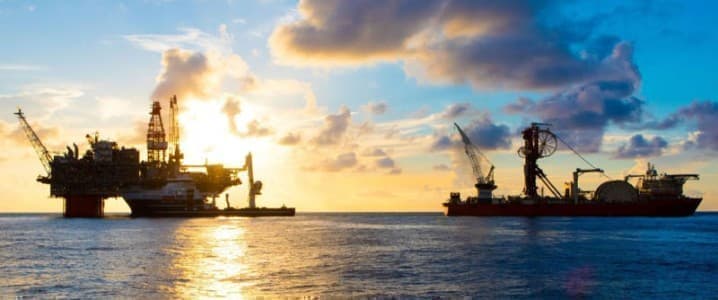Back in 2019, Brazil produced over 1 billion barrels of crude oil. It was the first time the national total had broken the billion-barrel mark, and more than half of that was pumped from the presalt zone offshore Brazil.
Five years later, supermajors are returning presalt blocks to the government after failing to strike oil. But one supermajor is going the opposite way: BP is drilling a deepwater well in one of the fields where other oil companies came up empty.
Back in 2019, everyone was flocking to the presalt basins, lured in by exploration data suggesting there are billions of barrels of oil lying below the salt layer on Brazil’s continental shelf. Everyone who’s anyone in oil was in Brazil. And some are still there.
Exxon, Chevron, Shell, Norway’s Equinor, and China’s CNOOC all have operations in Brazil’s presalt fields, and they have no intention of leaving the country. However, those same companies are among a number of explorers that recently had to give up exploration in fringe presalt areas, Upstream Online reported last month. Related: 2 Ways to Play Europe’s $800 Billion Energy Crisis
Exxon, Chevron, Shell, and Spanish Repsol, plus Petrobras itself, have all quit exploration in as many as 15 blocks in the Santos and Campos basins—two of the focal points of the presalt exploration spree, believed to contain a lot of yet untapped oil. But BP appears to be optimistic about the Pau Brasil field, where it had plans to start drilling back in 2019.
To say that this optimism is unusual would be putting it mildly. During a price rally in a business-as-usual environment for the industry, BP’s move would have been perfectly normal. But this is neither a time of a price rally nor is it business as usual for the oil industry.
Oil prices appear to be stuck in a narrow range, not least because of the uncertain outlook on long-term demand, and the industry in general, and BP specifically, are being subjected to ever-growing pressure to basically drop oil and gas in favor of more politically correct project such as solar power and EV charging, for instance.
Because of this environment, the supermajors have lately focused on the lowest-cost, surest-return assets they have, and those that have a shortage of such assets have gone on an acquisition spree. The argument could be made that the oil industry is in survival mode, challenged by the inexorable progress of the energy transition.
However, BP’s move in Brazil, as well as similar moves by other Big Oil majors, such as TotalEnergies in East Africa and Shell in Namibia, to mention but a couple, suggest that the above argument doesn’t really hold water.
What BP is doing in Brazil is a high-risk exploration project. This is not a field that has not been explored at all. There has been exploration in the area, and it has turned up zero barrels of oil. Yet BP sees the drilling project in Sau Brasil as worth the effort—and the money. And that, in turn, suggests that, challenges or not, the industry is not convinced that oil demand is on its way out.
It is a little ironic because a couple of years ago, it was BP that said that oil demand growth had peaked and it would never return to 2019 levels after the pandemic lockdown slump. It soon turned out that the prediction was as wrong as could be.
Oil demand did not simply rebound after the end of the lockdowns. It surged considerably above 2019 levels. Perhaps BP learned from its forecasting mistake at the time. Perhaps that’s why it is giving Sau Brasil a new chance. Because the transition is not going too well. And the world still needs ever-growing amounts of oil.
By Irina Slav for Oilprice.com
More Top Reads From Oilprice.com:
- This Could Be A Gamechanger For Natural Gas In Europe
- Russia Mulls Putting Nuclear Power Plant on Moon
- U.S. Seeks Semiconductor Supremacy with New Funding Initiatives

















